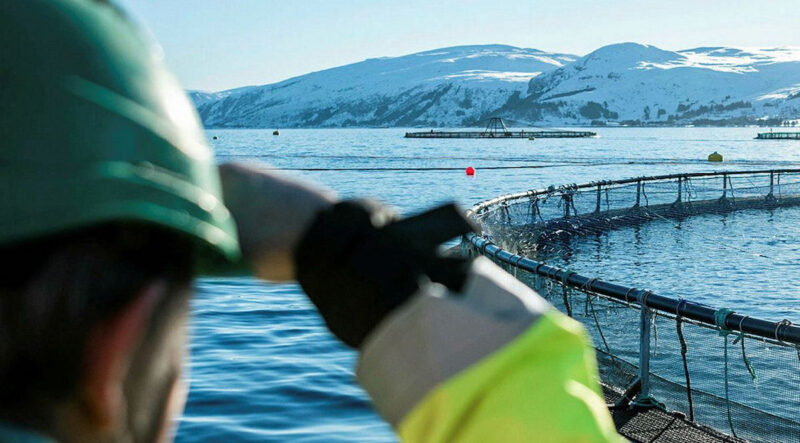What Canada’s next Fisheries Minister needs to do about aquaculture
Canada’s next Fisheries Minister, the fifth in just six years, needs to think outside the box for the sustainable growth of aquaculture
By Fabian Dawson
SeaWestNews
Canada’s next Fisheries Minister needs to think outside the box and challenge the status quo for the sustainable growth of aquaculture, say industry leaders.
Prime Minister Justin Trudeau is currently seeking a replacement for former Fisheries Minister Bernadette Jordan, who lost her seat in the recent election after a short tenure that was marred with controversy on both coasts.
Seafood industry observers told SeaWestNews, that Jordan governed the Department of Fisheries and Oceans (DFO) with a lack of clarity, bowing to demands from anti-aquaculture activists on Canada’s West Coast while being ineffective in the conflict between commercial fishers and Mi’kmaq lobster fishers in Atlantic Canada.
Trudeau is expected to name a new cabinet later this month.
The Fisheries portfolio is one of the most challenging federal cabinet positions, having seen 22 ministers since 1979, most of whom lasted less than two years in office.
The Mulroney administration had five fisheries ministers in nine years. Jean Chretien cycled through seven fisheries ministers in a decade while Stephen Harper had four fisheries ministers in nine years. Canada’s next Fisheries minister will be Trudeau’s fifth in just six years.
“Coming out of COVID, and then the Discovery Islands decision, there is considerable uncertainty in the seafood farming sector,” said Timothy Kennedy, President & CEO of the Canadian Aquaculture Industry Alliance (CAIA).
“Farmed seafood is fully traceable, low-carbon and its freshness cannot beaten. It’s the future of growing the seafood sector in Canada and the world to meet global demand for sustainable proteins. So it’s truly at the centre of any Blue Economy Strategy,” he said.
“The new Minister can take a number of actions to provide an important signal to renew confidence in the future and unleash frozen capital that is waiting to be invested in communities and innovation,” he said.
Jordan, during her tenure, rebuffed government scientists and announced plans to oust salmon farmers from BC’s Discovery Islands at the behest of the mainly urban-based anti-marine-aquaculture lobby group.
In addition to ignoring her own scientists, who found that the Discovery Island farms posed less than a minimal threat to wild stocks, internal government documents show she also rebuffed her deputy minister, Timothy Sargent, who recommended a more coordinated approach for the decommission of salmon farms in the area.
In its entirety, Jordan’s unexpected Discovery Islands’ decision will see BC losing almost $390 million in annual economic output with $87 million less in annual salaries and benefits, and 1,535 fewer jobs, mainly in coastal communities of BC.
Prior to the Discovery Islands decision, BC’s salmon farmers said they are ready to lead Canada’s post-pandemic recovery by directly investing $1.4 billion in innovation, new technology and infrastructure. The investments through 2050 would create almost 10,000 new jobs and add a cumulative $44 billion in new economic activity to propel Canada’s Blue Economy.
B.C. Salmon farmers, who have filed a judicial review of the Discovery Islands decision scheduled to be heard this month, are hoping the new minister will work with all stakeholders to find a better way forward.
“The 2017 Advisory Council on Economic Growth showed that the aquaculture sector is one of our small number of high-potential areas as a country,” said Stewart Muir, executive director of Resource Works, a natural resource industry think-tank.
“If Ottawa will only let them, the seafood industry, First Nations and local communities of British Columbia have shown they’re ready to drive this forward,” he said.
The new Minister has the opportunity to do a few critical things, said Kennedy of CAIA, whose members generate over $5.2 billion in economic activity, $2.1 billion in GDP, and employ over 21,300 people in the sustainable seafood farming sector in Canada.
“The new Minister must finally answer the question of which federal department champions the growth of the aquaculture sector. Thirty years of recommendations on this issue have not been resolved. Is it Department of Fisheries and Oceans, is it Agriculture Canada?”
“The biggest challenge is that the Canadian government has not championed or embraced this opportunity, instead leaving the sector in a morass of confusing departmental accountabilities and regulatory complexity,” said Kennedy.
“As a result, since 2002 production in Canada’s aquaculture has stagnated, with an average annual growth rate of about 1% from 2002 to 2019. Other nations, recognizing the opportunity, have moved quickly ahead. Over the same time period our share of world aquaculture production has fallen by 54%,” he said in a pre-election letter to Trudeau.
(photo courtesy of Mowi Canada)

